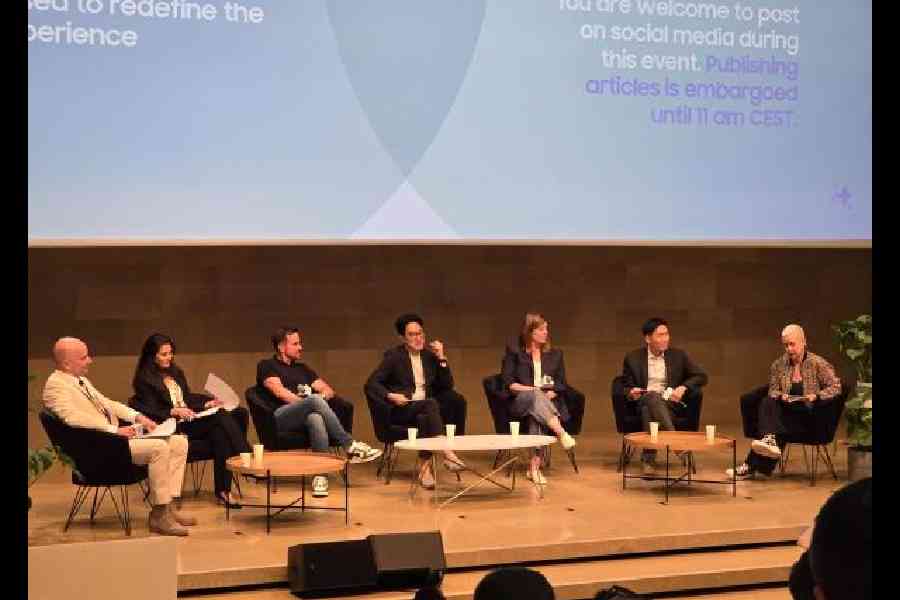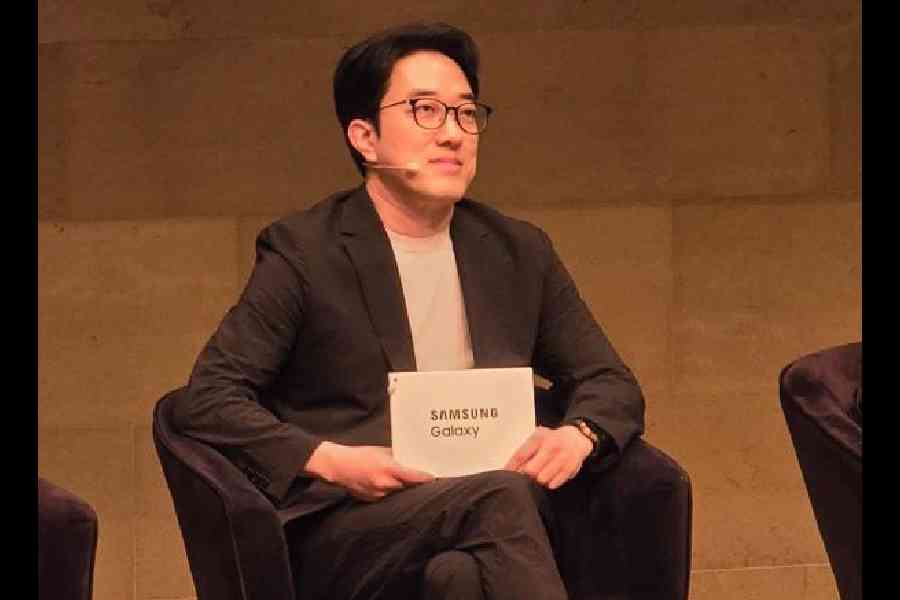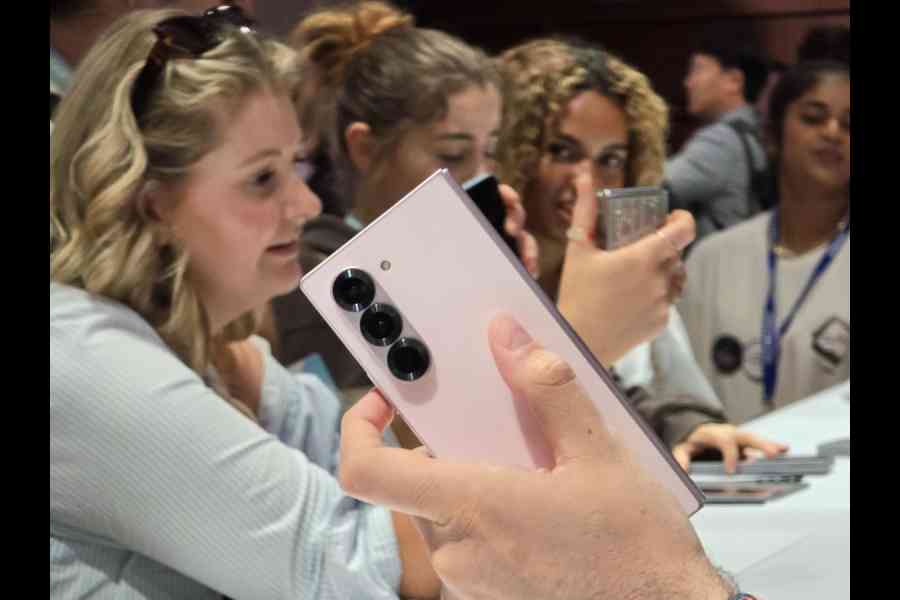Samsung Electronics unveiled its new Galaxy Z Fold6 and Galaxy Z Flip6 smartphones, besides the Galaxy Watch7, Galaxy Watch Ultra and Galaxy Ring wearables (and Galaxy Buds3 series), last week, introducing a slew of technical upgrades and artificial intelligence (AI) functions meant to fit the flexible form factors. It takes forward the advanced capabilities the company had announced with the launch of the Galaxy S24 series in January.
Galaxy Z Fold6 and Z Flip6 are equipped with the Snapdragon 8 Gen 3, optimised for AI processing and offer enhanced graphics and improved overall performance. One of the AI-powered features is the transcript function in Samsung Notes. It allows users to transcribe, translate, and summarise voice recordings directly within the app. Further, the PDF overlay translation feature allows users to translate text in PDF files and overlay the translations directly onto the original document. This is just the tip of the iceberg when it comes to the number of AI features that Samsung has introduced.
Shortly after the launch of the new devices, there was a discussion about Samsung’s approach to AI. Samsung surveyed 5,000 people, aged 18-plus, across France, Germany, Korea, the UK, and the US to better understand possible connections between quality of life and willingness to use mobile AI in various activities related to creativity, productivity, social relationships and physical health.

Samsung Galaxy Z Flip6 has several AI-related features, which were showcased during an event in Paris
“We have democratised Galaxy AI and made it available on more devices. We have extended our Galaxy AI to multiple and different form factor devices and wearables. All these accomplishments are only possible with collaboration with our partners. We believe that the hybrid AI approach, which is a combination of on-device and Cloud-based AI, can bring us the most practical, reliable and personalised experience,” said Won-joon Choi, executive vice-president and head of mobile R&D office, mobile experience business, Samsung Electronics.
He emphasised how the company is putting the user first because after a long time there is a new technology that users want to learn about and use.
“It is no longer about if people are using AI but rather how people are using AI and how much AI can offer benefits in a meaningful way.... Since we launched Galaxy AI in January, we have been constantly listening to consumers’ feedback to make AI become essential in everyday life. We believe in AI for all. We have been working on making Galaxy AI available to more devices. Galaxy AI has already been used on more than 100 million devices as of now and we are expecting to reach 200 million devices by the end of the year,” said Choi.
Through the survey, Samsung found that those who frequently use mobile AI report a higher quality of life than those who rarely use mobile AI. This is based on several quality-of-life indicators, including creativity, productivity, social relationships and physical health.
The other key global takeaway is that the majority of people are enthusiastic about mobile AI’s potential, with many reporting that they will embrace mobile AI even more as the technology advances in the future.
Third, a newly emerging subgroup of frequent AI users is showing a strong overlap between the embrace of AI and the likelihood of experiencing a good quality of life. It also points to early signs of a growing divide between those willing and unwilling to embrace the technology.
Fourth, using AI for translation to speak with someone who speaks a different language was found to be the most prominent AI use case, with respondents from Germany, the UK and the US ranking it as their top use case. Respondents in France and Korea generally agreed, ranking it as their second most prominent AI use case overall.
Creativity meets productivity

Samsung Galaxy Ring is the latest device from the South Korean company
“When we began this study, we were trying to tackle this from a different perspective, there’s been so much focus on the impact of AI on the workplace specifically and understanding how it’s going to affect ways of working. We were interested in a more holistic view of this around the impact of AI on everyday lives, lifestyles and how it affects the quality of life. We looked at key lifestyle indicators like creativity and productivity and well-being, social relationships, a broad face view of understanding of what it means to be a meaningful and then purposeful life,” said Chris Brauer, Goldsmiths, University of London.
He said this is the first a company like Samsung has “undertaken academic-level research to understand potential links between mobile AI use and quality of life”. “The key indicators we looked at were creativity, productivity, physical health and social relationships. What we discovered gives a very clear indication of the immense potential that lies ahead for AI users.”
If we look beyond the foldable phones that Samsung has announced, there is the vision of tailored health experiences, be it from the Galaxy Ring or the new Galaxy Watch 7 and the Galaxy Watch Ultra. The intelligence, guidance and insights that are offered with the wearables will help users turn data into meaningful insights.
Samsung has always believed in working with partners to offer the best experience, like Google and what’s possible with Gemini.
“To create something that works for everyone, using different devices in a range of situations, that’s something Google and Samsung have been figuring out together since the beginning of the Android platform. It was no different when it came to Gemini and Galaxy AI. It all comes down to zooming in on how people use their devices,” said Jenny Blackburn, vice-president of user experience for Gemini experiences and Google Assistant, Google.

(Left to right) Chris Brauer, Lucia Russo, Don McGuire, Won-joon Choi, Jenny Blackburn, Daehyun Kim, Carolina Milanesi at a discussion on how mobile AI is poised to redefine the user experience, organised by Samsung, in Paris on July 11
An important part of the AI experience would be how much of the features will be processed on-device vis-a-vis the cloud. Don McGuire, chief marketing officer, Qualcomm said: “The question is where can that function best take place from a power consumption perspective, from a resources perspective… because if all AI has to go to the Cloud, the economic model won’t work. There will also be an issue with the sustainability model. On the other hand, there are issues like privacy, safety, speed and security. So there is user experience and a practicality layer which are going to drive where things (processing) happen. It has to be hybrid for practical reasons.”
Daehyun Kim, executive vice-president of the Samsung research global AI Centre, Samsung Electronics, said that keeping user wants in mind, the company has created “truly human-centric mobile AI, while also protecting users’ right to privacy”.

Won-Joon Choi, executive vice-president and head of mobile R&D office, mobile experience business, Samsung Electronics
AI by numbers
People are enthusiastic about mobile AI’s potential:
52% say they’ll embrace mobile AI even more as the technology advances
46% of people are most likely to use mobile AI on their smartphone. PC AI use follows at 32%
Relationship between frequent AI use and quality of life
16% report using mobile AI frequently (defined as frequent users)
75% of frequent AI users are open to new experiences and perspectives compared to 45% of “rare” users
Frequent mobile AI users rank higher in every quality-of-life marker but they are also more stressed
These users rank highest in the indicator of feeling productive (63%), followed by feeling financially secure (57%) and regularly expressing their creative side (54%)
The biggest difference between frequent and rare users comes in those who regularly express their creative side, with 54% of frequent users reporting they do so, but only 25% of rare users reporting the same
Source: Mobile AI Report: AI’s potential as a gateway to better living










